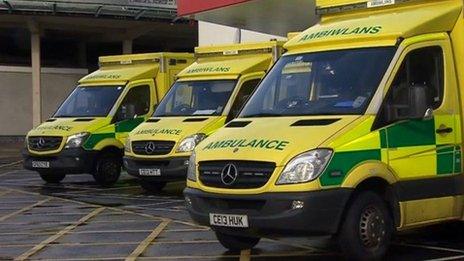Ambulance target time missed again
- Published
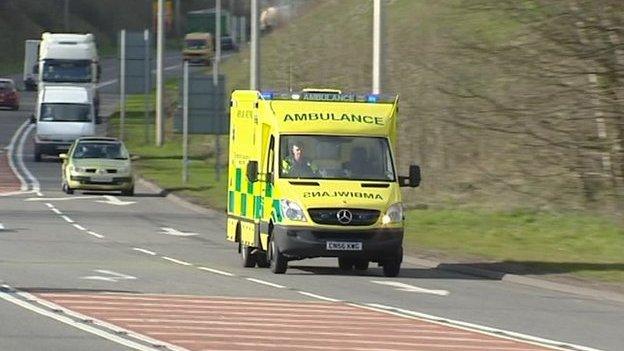
The Welsh Ambulance Service has again fallen short of its response time target for life-threatening calls.
Although it has improved for a seventh successive month, with 61.7% of so called Category A calls arriving within eight minutes, it is still short of the 65% target.
Last December's figures were the worst on record, at just 42.6%.
The 65% target was met in north Wales but only 51.1% arrived on target in Ceredigion.
Fewer cases will be subject to the eight-minute response time from October.
In July 2015 there were 36,907 emergency calls.
That is 3.1% fewer than in July 2014.
The responses to the most critical emergency calls are also analysed.
The so-called Red 1 performance - which includes patients who have had heart attacks or stopped breathing - was 73.2% within eight minutes across Wales.
This is down from 73.6% in June but up from 71.0% in May 2015.

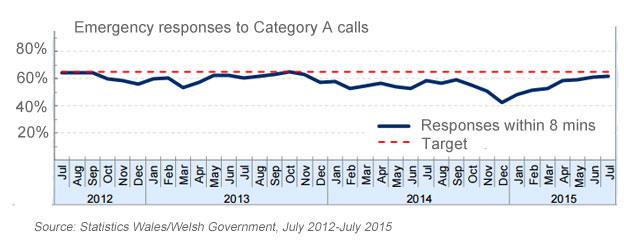
Although improving the response times are still short of the 65% target

'Dedication'
Conservative shadow health minister Darren Millar said Welsh Labour ministers should be "investing in our health service to turn poor performance around", rather than scrapping targets.
Welsh Liberal Democrat leader Kirsty Williams said: "NHS staff and paramedics work incredibly hard and do an extremely difficult job, which we are all thankful for, but they are being held back by the Labour government in Wales."
The Welsh government said the standard emergency response time for July 2015 was six minutes and 27 seconds, the quickest since November 2013, but they expected "commissioners, health boards, and other partners to work closely with the ambulance service to improve performance and maintain excellent patient outcomes".
A spokesperson added: "The recent National Survey results revealed 97% of people who had contact with the ambulance service have confidence in the skills of paramedics, which serves as great testament to the dedication and hard work of staff who are often unfairly criticised."
- Published29 July 2015
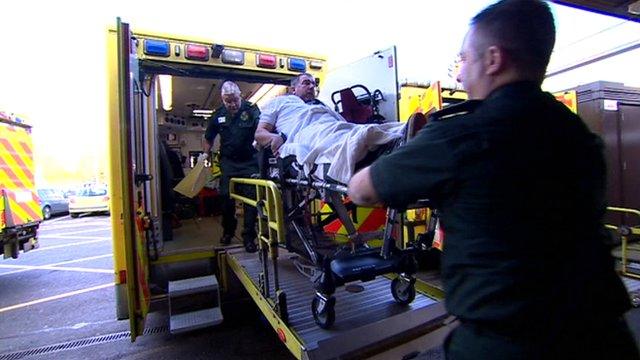
- Published29 July 2015
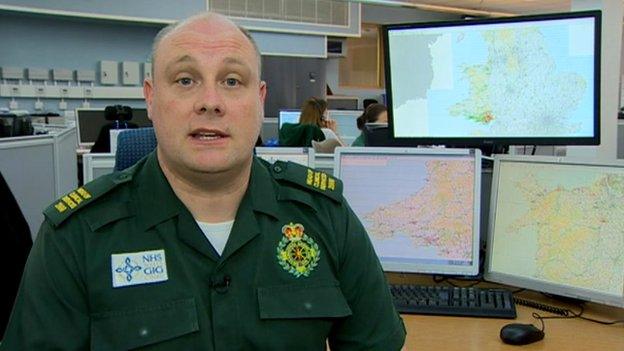
- Published24 June 2015
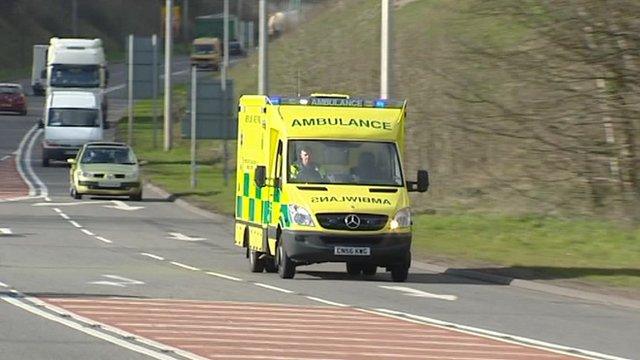
- Published25 February 2015
